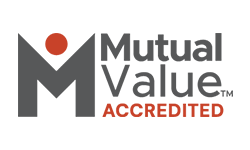According to the Australian Government’s Scamwatch, Australians lost over $300 million to scams in 2024. The most common scams are investment, romance, and phishing scams, with the most common contact method reported as email, however scams can also come by phone and SMS. Not only can scams be financially harmful, but they can have serious emotional impacts due to the shame and stress they may cause. Unfortunately, scams are becoming harder to spot as they become increasingly complex with new technologies.
The National Anti-Scam Centre’s purpose is to help protect all Australians from falling victim to scams, across the private, and public sectors. They provide advice on how to avoid scams, as well as how to report them, and how to support yourself and loved ones who have been scammed.
To combat the threat of scams, the National Anti-Scam Centre has launched a new awareness campaign, "Stop. Check. Protect." to educate Australians on how to spot and avoid scams. The campaign aims to make Australia a tougher target for scammers by arming individuals with the tools they need to protect themselves.
ACCC Deputy Chair, Catriona Lowe said "This campaign is about inspiring the behavioural change in every Australian - ensuring we stop and check before acting on that suspicious email, phone call, text message, or social media post - that will stop scammers in their tracks".
Scam Warning Signs
It can be hard to spot a scam, and scammers rely on you not recognising the red flags because you are in a hurry, you don't want to miss out on a great deal, or it appears to be from a trusted source. There can be many warning signs that you can look out for:
- Opportunities to make or save money that seem too good to be true
- Appeals for help or money from unknown individuals
- Messages containing links or attachments from unknown senders
- Pressure to act quickly
- Requests for unusual payment methods
Protect Yourself
Keep yourself safe from fraudsters by following these three simple steps every time.
Stop and think before acting. Don't give any personal information, or money, to anyone if you are unsure.
Check who you're dealing with and verify their identity. Ask yourself if the message could be fake.
Protect yourself by reporting suspicious activity to Scamwatch and seeking help if you've been scammed. It is best to act quickly and contact your trusted institution if you notice discrepancies, and report the scam to Scamwatch.
Need help?
If you believe someone has gained access to your personal information, even if the scam appears unrelated to your finances, you should contact your bank immediately. A timely response can be critical in giving you the best chance to stem any loss.
- If you have concerns about your G&C Mutual Bank account contact us on 1300 364 400.
- You can find out how scams work, how to protect yourself, what to do if you’ve been scammed or report a scam to the Australian Competition and Consumer Commission (ACCC) via Scamwatch.
As always, G&C Mutual Bank remains committed to your security and privacy online. To understand how we help to keep you safe, please refer to our Security page and for information on common scams and how to protect yourself, please visit the News section of our website.
Source: National Anti-Scam Centre




